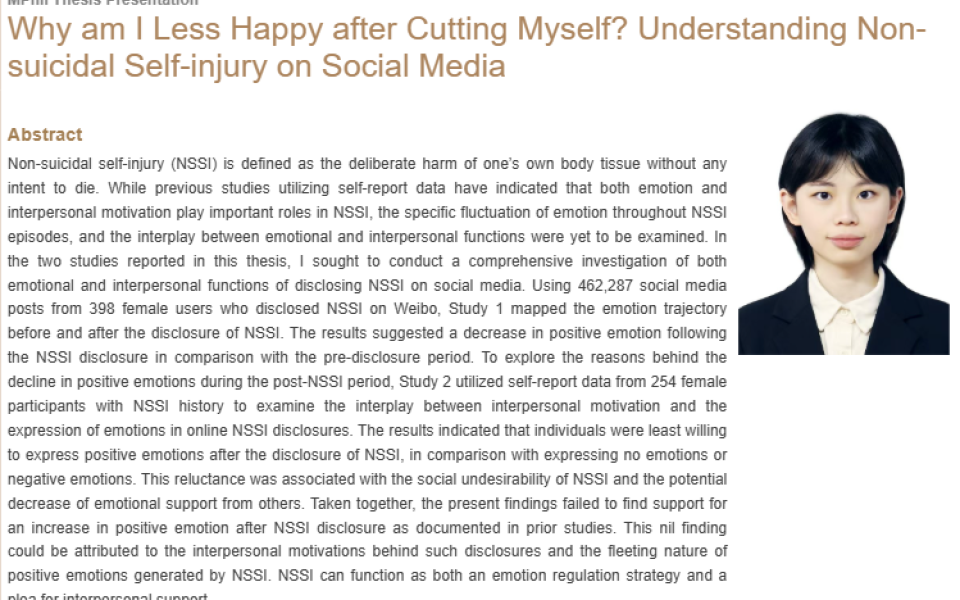Abstract
Non-suicidal self-injury (NSSI) is defined as the deliberate harm of one’s own body tissue without any intent to die. While previous studies utilizing self-report data have indicated that both emotion and interpersonal motivation play important roles in NSSI, the specific fluctuation of emotion throughout NSSI episodes, and the interplay between emotional and interpersonal functions were yet to be examined. In the two studies reported in this thesis, I sought to conduct a comprehensive investigation of both emotional and interpersonal functions of disclosing NSSI on social media. Using 462,287 social media posts from 398 female users who disclosed NSSI on Weibo, Study 1 mapped the emotion trajectory before and after the disclosure of NSSI. The results suggested a decrease in positive emotion following the NSSI disclosure in comparison with the pre-disclosure period. To explore the reasons behind the decline in positive emotions during the post-NSSI period, Study 2 utilized self-report data from 254 female participants with NSSI history to examine the interplay between interpersonal motivation and the expression of emotions in online NSSI disclosures. The results indicated that individuals were least willing to express positive emotions after the disclosure of NSSI, in comparison with expressing no emotions or negative emotions. This reluctance was associated with the social undesirability of NSSI and the potential decrease of emotional support from others. Taken together, the present findings failed to find support for an increase in positive emotion after NSSI disclosure as documented in prior studies. This nil finding could be attributed to the interpersonal motivations behind such disclosures and the fleeting nature of positive emotions generated by NSSI. NSSI can function as both an emotion regulation strategy and a plea for interpersonal support.
